
A good night’s sleep can often feel like a luxury hard to come by. Work, kids, social pressures/obligations, as well as other distractions such as technology may keep you awake far longer than they should, making you sacrifice something that is detrimental to the overall health of your body: sleep.
Effects of Sleep Deprivation
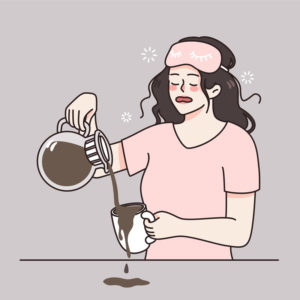
The average adult needs 7-9 hours of sleep per night but around 1/3 of adults in America are not getting even this recommended amount of sleep. Losing even one hour of sleep can negatively impact your next day leading to irritability, an inability to focus, higher stress levels, and a heightened feeling of tiredness. If this pattern of sleep deprivation continues, it can take an even bigger toll on your body and mind.
Those who develop chronic sleep deprivation, or sleep deprivation that occurs for three months or more, may even begin to experience decreased bodily health and become more at risk for developing diseases such as diabetes, heart disease, stroke, obesity, mental illnesses such as depression, an inability to engage higher levels of thinking, and a weakened immune system. [1]Bandyopadhyay, A. Sigua, N. L. (2019). What is sleep deprivation? American journal of respiratory and critical care medicine, 199 (6), P11-P12. Retrieved 5/30/2022 … Continue reading
Advantages of a Good Night’s Sleep
People who sleep more tend to have numerous health and mental advantages when compared to those who do not get enough sleep. Some of these advantages can include the following.
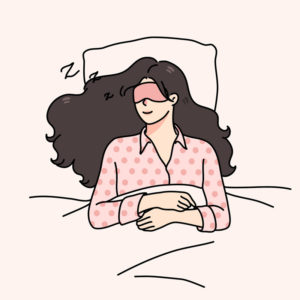
A Healthier Heart
When you get a healthy amount of sleep, your body releases hormones that can help keep your heart healthy. These hormones are often released throughout the full REM cycle, therefore if you are deprived of any part of your REM cycle, your body may not release the proper hormones to keep you healthy.
Stress Reduction
Throughout your day, you experience stress factors that may be pretty overwhelming, but while you sleep, your body recovers from the stress of the day by releasing stress hormones, helping you wake up feeling more relaxed and ready for another day.
Regulated Weight
Although we may associate sleeping too much with being lazy, those who get the recommended amount of sleep tend to be less overweight than those who don’t. This is because sleep helps to regulate hormones such as leptin and ghrelin, which control how hungry you are or how much of an appetite you have.
Increased Immune System
Those who sleep more have a better chance of fighting off illnesses and are able to prevent becoming sick as often as those who are sleep-deprived.
Higher Brain Function
Those who sleep more are able to think better and remember more than those who don’t sleep enough. Their concentration is higher, and they are better able to solve complicated problems, make connections, and find solutions.
Benefits of Sunlight for Healthy Sleep Patterns
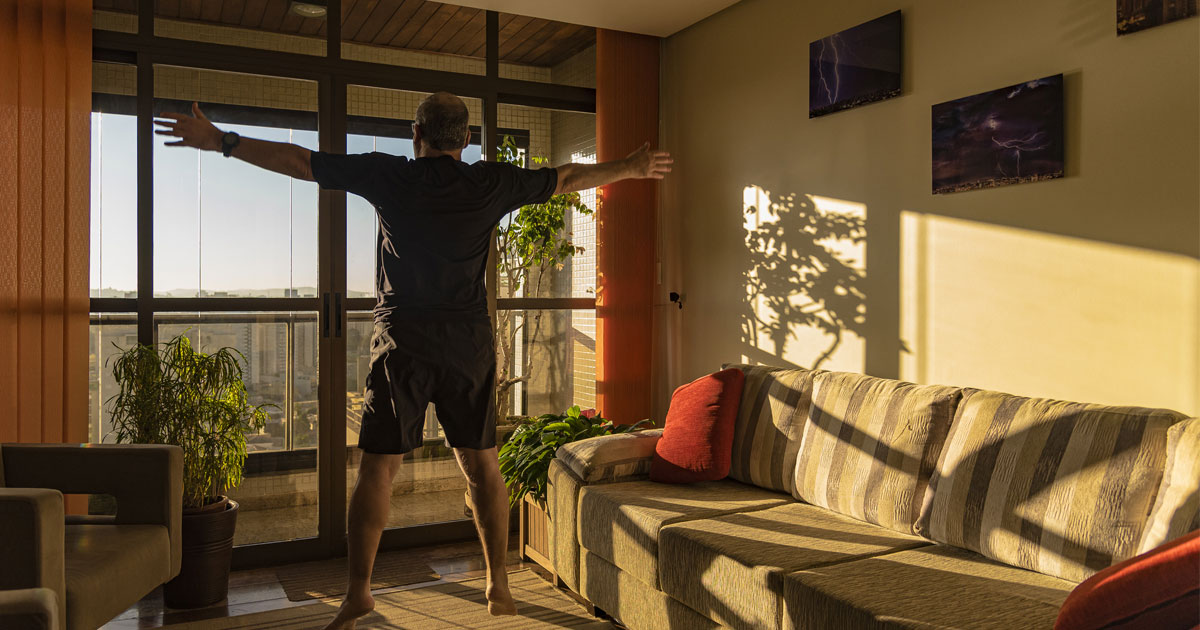
Isn’t it ironic that the sun can help you sleep? You may not have realized it, but exposure to sunlight can actually help to promote a good night’s sleep. In a world before electricity and the bright lights that line city streets or even light up your living room, sun exposure and sleep were greatly linked. The sun indicated to humans when it was time to be awake and the darkness told them when it was time to sleep.
Since artificial lighting has swept throughout the globe, less time is spent outdoors, and more time is spent inside under the exposure of some harsh, potentially-damaging LED and blue lights. This reality can often mess with your natural circadian rhythm, causing disruptions in your ability to sleep at night.
Although people tend to spend a lot of time in fear of getting burnt by the sun, some sun exposure daily can actually be very good for you. Morning sunlight benefits include less likelihood of burning. Per week, it is recommended for you to get 5-15 minutes of sun exposure on your face, arms, and hands. This type of natural light exposure can help your body stay healthy and alert, but most importantly, sun exposure helps to produce the hormone serotonin and provides your body with Vitamin D.
What Is Serotonin?
Serotonin is a hormone that is produced when sunlight is processed through your retina and triggers the release of the hormone in your brain. Ultimately, serotonin helps control your mood. It can be associated with increased feelings of happiness. People who have higher levels of serotonin tend to be happier, calmer, and more focused than those with lower levels.
A lack of serotonin is often prominent in regional areas with extreme winters where there are shorter bouts of daylight throughout the day. A decrease in serotonin can lead to a disorder called seasonal affective disorder or SAD. People who suffer from this disorder may experience symptoms of depression or have more panic attacks. [2]Mead, M. N. (2008). Benefits of sunlight: a bright spot for human health. Environmental Health Perspectives, 116 (4).https://doi.org/10.1289/ehp.116-a160
To combat SAD, light therapy is often recommended. This type of therapy acts as a replacement for sunshine by having the patients sit in front of a light box every day for 30-45 minutes throughout the fall through spring seasons.
Vitamin D
When you spend a day out in the sun or even a short amount of time absorbing the sun’s rays on your skin, your body is creating Vitamin D. Vitamin D has many benefits to your health such as keeping your bones healthy and strong, decreasing your risk of developing certain types of cancers including ovarian and colon cancer, and helping to heal or decrease the symptoms of numerous skin conditions such as severe acne and eczema. [3]Swick, C. J. (2022). Can Lack of Sunlight Make You Ill-Examining Vitamin D Deficiency. Digestion. Retrieved 5/30/22 from https://youmemindbody.com/disease-illness/Vitamin-D-Sunshine-in-a-Bottle
In addition, regulated levels of Vitamin D help your body establish a healthy circadian rhythm. A Vitamin D deficiency can cause fatigue or oversleeping, therefore by obtaining a sufficient level of Vitamin D, your body can regulate healthy sleep patterns and help your body fight disorders such as SAD. [4]Choi, J. H., Lee, B., Lee, J. Y., Kim, C. H., Park, B., Kim, D. Y. Park, D. Y. (2020). Relationship between sleep duration, sun exposure, and serum 25-hydroxyvitamin D status: a cross-sectional … Continue reading
How Does Sunlight Affect Sleep?
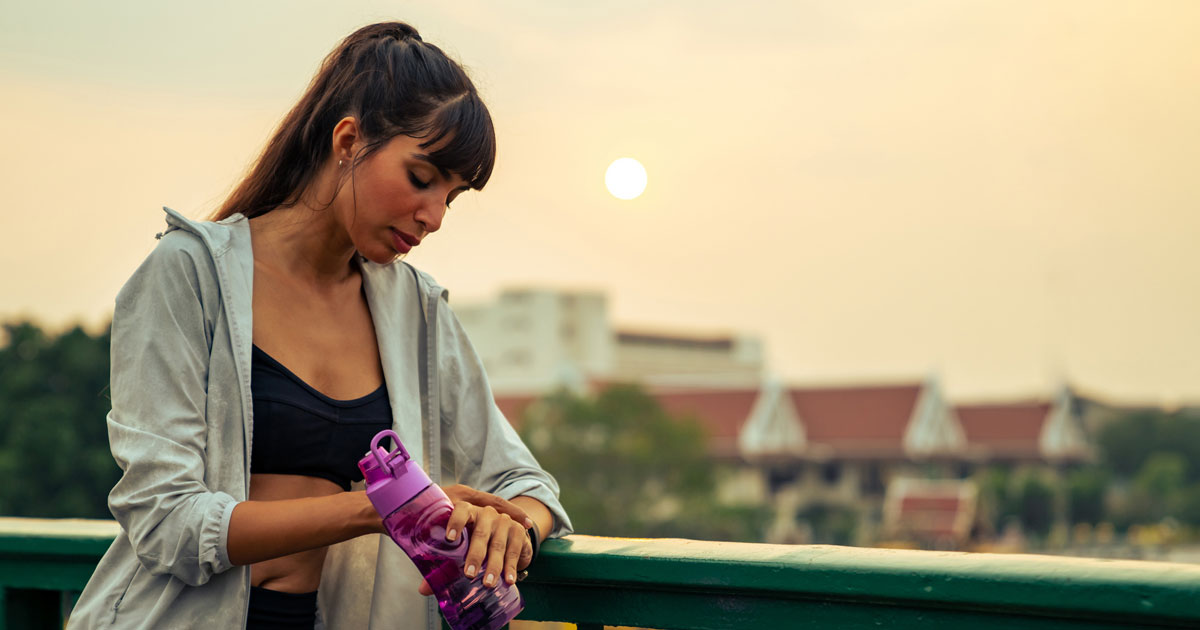
Much of the function of sunlight on the human body is to act as a natural alarm clock letting your body know when to wake up and when to go to sleep. This is called your circadian rhythm and it is controlled by the circadian pacemaker in your brain.
Your circadian rhythm changes much like the seasons. In the western world, days become warmer as summer approaches, creating longer periods of daylight. During these times, the body adjusts, often waking up earlier and going to sleep later in order to follow the span of daylight. In winter, the reverse happens. The body wakes up later and goes to sleep earlier to follow the lessening amount of daylight hours.
How Can Your Circadian Rhythm be Thrown Off-Balance?
Your circadian rhythm helps you find balance in everyday life, but it can also be thrown off-balance in our modern landscape. Below are some common ways this can occur.
Working Night Shifts
If you are working night shifts at work, you may not sleep as well as those who are working daytime shifts because you are throwing your circadian rhythm off-balance and forcing yourself to stay awake when you should be sleeping. This is not natural for your body and may take a toll on your sleep.
Travel
When crossing through several time zones, your body becomes confused. Although you may be used to one time zone, entering another time zone can disrupt your circadian rhythm, causing potential difficulties in sleeping. This condition is called jet lag and people who experience it may find that they cannot sleep at night and are experiencing intense fatigue or drowsiness during the daylight hours. It can take as long as two weeks for your body to balance out this change and begin to feel normal again. [5]Minors, D. S., & Waterhouse, J. M. (2013).Circadian rhythms and the human. Butterworth-Heinemann. Retrieved 5/30/22 from … Continue reading
How Can Light Hinder Sleep?
As indicated above, humans did not always live under harsh office lighting, or the glare of the TV playing while trying to get a good night’s sleep. Before electricity, the dim glow of a fire was the only way to light up the night sky. Adapting to being awake during daylight and asleep at night is the body’s natural way of adjusting to the environment in an advantageous way.
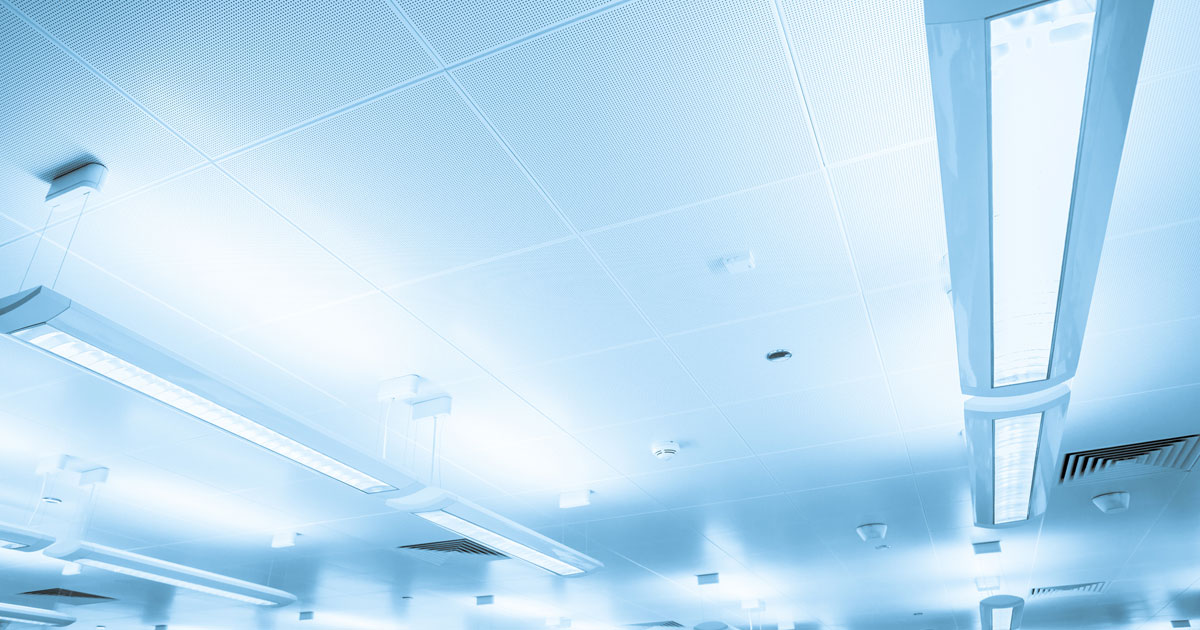
This is how it is supposed to be, but with electricity all around us, sleep becomes affected because artificial lighting can disturb humanity’s natural instinct to sleep when it is dark and be awake when it is light. Instead, humans now have the option to sleep during the day and be awake at night, living under artificial light which ultimately hinders deep sleep.
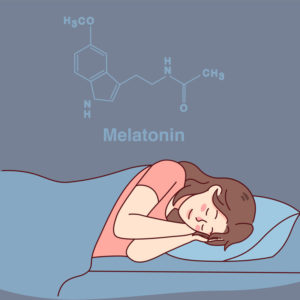
With constant light over you, your body has to work much harder in the production of the hormone melatonin. This hormone is made by the body in response to darkness. It is what helps you sleep at night and is part of your 24-hour circadian rhythm. Since the human body is supposed to sleep at night, melatonin production gets the body ready to sleep in a similar way that sunlight produces serotonin, which helps the body stay awake, feel happy, and have energy throughout the day.
Even if you are sleeping with light, it is often not as deep of a sleep as sleeping in pitch darkness. Even dim light such as a TV or a computer screen can cause more interruptions to your REM cycle while you are sleeping in comparison to sleeping in total darkness.
Tips For Getting Better Sleep
If you are looking to get better sleep at night, try some of the following tips.
Invest in Black-out Curtains
These curtains will keep out any lights coming from outside of your bedroom and create a darker sleeping space.
Use Motion Sensor Lights
A fear of the dark is no joke, but by keeping lamps or other nightlights on, you can interrupt your ability to fall into a deep sleep. Instead, motion sensor lights turn on in case you have to get up at any point throughout the night.
Reduce Technology Use
Technology is a major culprit in sleep deprivation. It is easy to become distracted by it or even fall asleep to a movie. It may seem subtle, but it can damage your ability to get a good night’s sleep.
Dim the Lights Closer to Bedtime
As you wind down for the night, try to create as dark a space as possible. Instead of using overhead lights, consider a low luminance lamp or a warm-colored lamp such as a salt lamp to help you wind down for sleep.
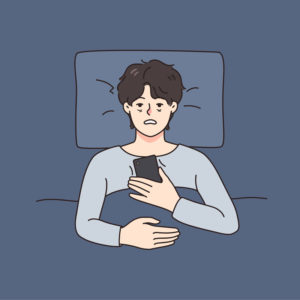
Sleep and Your Hormones
Sleep is an essential part of our lives. Without it, our bodies and minds are not able to function properly, causing mental and health problems to arise. If you feel like you are sleep-deprived but are unsure of what may be preventing you from getting a good night’s sleep, you might want to consider trying a Sleep Balance Test Kit.
With this kit, you can test for hormone imbalances in both your melatonin and cortisol levels through periodic urine samples in order to better grasp why your body may be struggling to get deep, restful sleep.
Chief Operating Officer, The Compounding Pharmacy of America
Matthew Poteet, Pharm.D. graduated with Honors from Lee University with a Bachelors of Science in Biological Science. After his undergraduate training, he completed the Doctor of Pharmacy program at Mercer University Southern School of Pharmacy, graduating in 2004. Dr. Poteet has spent much of his pharmacy career on staff at two of the most prestigious academic teaching hospitals in the Southeast; Emory University in Atlanta and Vanderbilt University Medical Center in Nashville. At these institutions he received extensive experience and training in sterile products compounding.
He returned home to East Tennessee in 2010, where he has held the position of Pharmacy Director at two sterile products pharmacies in Knoxville. Matthew lives in Knoxville with his wife, Chris. Dr. Poteet is Tennessee’s first Board Certified Anti-Aging Pharmacist by the American Academy of Anti-Aging Medicine.
Sources:
| ↑1 | Bandyopadhyay, A. Sigua, N. L. (2019). What is sleep deprivation? American journal of respiratory and critical care medicine, 199 (6), P11-P12. Retrieved 5/30/2022 fromhttps://www.atsjournals.org/doi/pdf/10.1164/rccm.1996P11 |
|---|---|
| ↑2 | Mead, M. N. (2008). Benefits of sunlight: a bright spot for human health. Environmental Health Perspectives, 116 (4).https://doi.org/10.1289/ehp.116-a160 |
| ↑3 | Swick, C. J. (2022). Can Lack of Sunlight Make You Ill-Examining Vitamin D Deficiency. Digestion. Retrieved 5/30/22 from https://youmemindbody.com/disease-illness/Vitamin-D-Sunshine-in-a-Bottle |
| ↑4 | Choi, J. H., Lee, B., Lee, J. Y., Kim, C. H., Park, B., Kim, D. Y. Park, D. Y. (2020). Relationship between sleep duration, sun exposure, and serum 25-hydroxyvitamin D status: a cross-sectional study. Scientific Reports, 10(1), 1-8. Retrieved 5/30/22 from https://www.nature.com/articles/s41598-020-61061-8 |
| ↑5 | Minors, D. S., & Waterhouse, J. M. (2013).Circadian rhythms and the human. Butterworth-Heinemann. Retrieved 5/30/22 from https://books.google.es/books?hl=en&lr=&id=lqk5AwAAQBAJ&oi=fnd&pg=PP1&dq=circadian+rhythms&ots=el3fE81wAw&sig=2B2mmwvH2nwobqlkq1A9Js0A3c0&redir_esc=y#v=onepage&q=circadian%20rhythms&f=false |
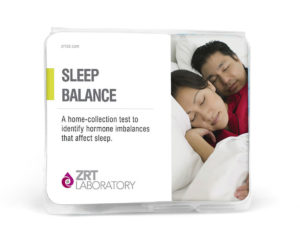
 Subscribe to Our Newsletter
Subscribe to Our Newsletter


